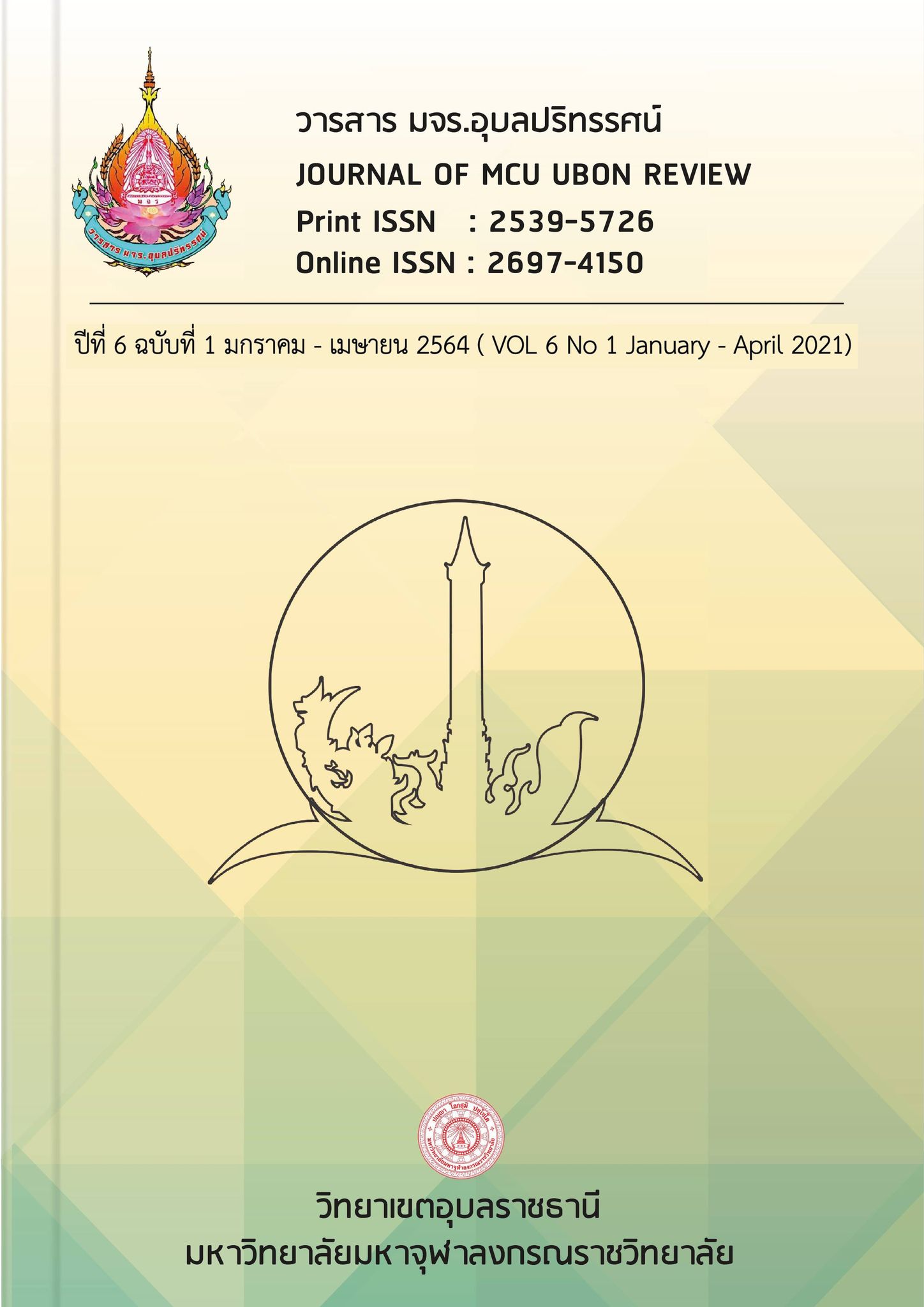ศึกษาวิเคราะห์หลักพุทธปรัชญากับการแก้ไขปัญหายาเสพติดให้โทษของเด็กและเยาวชนในจังหวัดหนองคาย
Main Article Content
บทคัดย่อ
งานวิจัยนี้ มีวัตถุประสงค์ดังนี้ 1) เพื่อศึกษาหลักพุทธปรัชญากับยาเสพติดให้โทษ 2) เพื่อศึกษาการแก้ไขปัญหายาเสพติดให้โทษของเด็กและเยาวชนในจังหวัดหนองคาย 3) เพื่อศึกษาวิเคราะห์หลักพุทธปรัชญากับการแก้ไขปัญหายาเสพติดให้โทษของเด็กและเยาวชนในจังหวัดหนองคาย งานวิจัยนี้เป็นงานวิจัยเชิงคุณภาพ โดยผู้วิจัยศึกษาค้นคว้าจากเอกสาร ได้แก่ พระไตรปิฎก พระราชบัญญัติยาเสพติดให้โทษ เอกสารกฎหมายเกี่ยวกับยาเสพติด และสัมภาษณ์บุคคลที่เกี่ยวข้องกับการแก้ไขปัญหายาเสพติดให้โทษของเด็กและเยาวชนในจังหวัดหนองคาย ข้อมูลที่ได้นำมาวิเคราะห์เนื้อหาและวิเคราะห์แบบสร้างข้อสรุปอุปนัยผลการวิจัยพบว่า : ยาเสพติดให้โทษ ในทางพระพุทธศาสนาถือว่าเป็น มัชชะ เป็นของมึนเมา บัญญัติไว้ในหลักธรรมศีล 5 การเสพยาเสพติดให้โทษเป็นที่ตั้งแห่งความประมาท เป็นมูลแห่งอกุศลธรรมทั้งหลาย ก่อให้เกิดทุกข์ และเป็นมูลเหตุแห่งอาชญากรรมหลายชนิด หลักพุทธปรัชญากับการแก้ไขปัญหายาเสพติดให้โทษของเด็กและเยาวชน ให้ความสำคัญกับการพัฒนาด้านจิตใจของเด็กและเยาวชน ให้มีสติ เกิดปัญญา นำไปสู่การปฏิบัติที่ถูกต้อง เพื่อแก้ไขปัญหายาเสพติดให้โทษ ประกอบด้วยหลักพุทธปรัชญาเพื่อการเรียนรู้ ได้แก่ หลักอริยสัจ 4 และหลักปฏิจจสมุปบาท หลักพุทธปรัชญาเพื่อการป้องกัน ได้แก่ หลักอบายมุข 6 หลักทิศ 6 หลักมิตรแท้มิตรเทียม หลักหิริโอตตัปปะ และหลักโยนิโสมนสิการ เมื่อนำหลักพุทธปรัชญาเหล่านี้มาแก้ไขปัญหา เด็กและเยาวชนได้เรียนรู้ถึงเหตุปัจจัยที่ก่อให้เกิดปัญหายาเสพติดให้โทษ สำรวมอายตนะให้ห่างไกลจากยาเสพติดให้โทษ เห็นโทษและพิษภัยของยาเสพติดให้โทษ ปลูกฝังค่านิยมที่ดี และความประพฤติที่ดี ช่วยให้เด็กและเยาวชนเกิดความละอายใจ มีวิจารณญาณที่ดีในการตัดสินใจให้ห่างไกลจากปัญหายาเสพติดให้โทษได้
Article Details
เอกสารอ้างอิง
วารสาร Humanities and Social Sciences มนุษยศาสตร์สังคมศาสตร์ คณะ มนุษยศาสตร์และสังคมศาสตร์ มหาวิทยาลัยขอนแก่น, 33(3).
พัฒน์ธนธร ตันติเวชยานนท์ และคนอื่นๆ.(2558). ประสิทธิผลของนโยบายการป้องกันและ ปราบปรามยาเสพติดตามแนวชายแดนแม่น้ำโขง. วารสารบัณฑิตศึกษา
มหาวิทยาลัยราชภัฏสวนสุนันทา.
อมรวิชช์ นาครทรรพและจุฬาภรณ์ มาสเถียรวงศ์. (2548). เมื่อความทุกข์ไล่ล่าเด็ก: ข้อเท็จจริงจากงานวิจัยภาคสนามกับคำถามที่ท้าทายในการเสริมสร้างสุขภาวะให้เด็กไทย, กรุงเทพฯ : สถาบันรามจิตติ.
อรุณ ชัยวงศ์. (2560). การป้องกันและแก้ไขปัญหายาเสพติดขององค์กรปกครองส่วนท้องถิ่นตามแนวชายแดนจังหวัดหนองคาย. วารสารมหาวิทยาลัยมหาจุฬาลงกรณ์ราชวิทยาลัย. ปีที่ 2 ฉบับที่ 2 (พฤษภาคม-สิงหาคม 2560).
สุพัตรา สุขาวห และมานพ คณะโต. (2557). การพัฒนาต้นแบบความรู้ในการป้องกันการใช้สารเสพติดในเยาวชนกลุ่มเสี่ยง. วารสารการพัฒนาสุขภาพชุมชนมหาวิทยาลัยขอนแก่น. ปีที่ 2 ฉบับที่ 3 (กรกฎาคม-กันยายน 2557).
เอกรัตน์ หามนตรี. (2561). ความสำเร็จของชุมชนในการป้องกันและแก้ไขปัญหาเยาวชนที่มีพฤติกรรมเสี่ยงต่อการติดยาเสพติดในจังหวัดอ่างทอง. วารสารมหาจุฬา นาครทรรศน์, ปีที่ 5 ฉบับที่ 2 (พฤษภาคม - สิงหาคม 2561).
วิญญู กินะเสน (2561). การส่งเสริมการพัฒนาเยาวชนตามวิถีพุทธของสถาบันทางสังคมในจังหวัดนครปฐม. วารสารวิชาการมหาวิทยาลัยราชภัฎเพชรบุรี. ปีที่ 8 ฉบับที่ 1 (มกราคม-เมษายน 2561).


